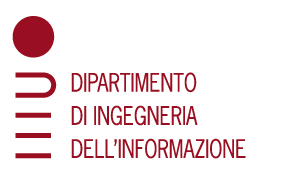Prof. Laurence Wolsey
CORE (Center for Operations Research and Econometrics)
Universite Catholique de Louvain
Louvain-la-Neuve, Belgium
Starting form the 50's to the 80's the area of discrete optimization
was marked by the development of linear programming, some elegant
mathematics: complexity theory and graph theory, and the relative
disappointment due to the inability to provide efficient computational
methods for solving some fundamental problems arising mainly in
engineering- management science .
Recently the pendulum has swung. Combining correct modelling with some
old and new mathematical results, remarkable improvements in linear
programming software and faster computers, it is now possible to tackle
and solve exactly or approximately large-scale problems that are
theoretically intractable and come from diverse fields: computational
biology, airline, bus and railway scheduling, electricity generation,
data mining, etc.
Recently the pendulum has swung. Combining correct modelling with some
old and new mathematical results, remarkable improvements in linear
programming software and faster computers, it is now possible to tackle
and solve exactly or approximately large-scale problems that are
theoretically intractable and come from diverse fields: computational
biology, airline, bus and railway scheduling, electricity generation,
data mining, etc.
Still, some of them remain computationally intractable, even for
relatively small dimension: This has prompted the study of alternative
methods to solve them.
In this presentation, we review a few highlights of the last 50 years,
take a couple of practical problems, and we point out some of the
challenges for the future.
Short biography
Laurence Wolsey is Professor of Applied Mathematics and Operations Research at CORE (Center for Operations Research and Econometrics) of the Engineering School of l'Universite Catholique de Louvain, Belgium.
He received a Ph.D. in mathematics from the Massachusetts Institute of
Technology.
His main field of research is integer programming, where he has given
fundamental contributions both in theory and computations.
He is author of fundamental textbooks in the domain:
'Integer Programming' 1998 and 'Integer Programming and Combinatorial
Optimization' 1988 (with G. L. Nemhauser), a reference for researchers
in the area.
He has worked with research groups at BASF (production planning),
France Telecom (multiplexer assignment) and DASH (commercial mixed
integer programming systems) among others.
He has received the Orchard-Hays prize in 1988 from the Mathematical
Programming Society (with T.J. Van Roy), the Lanchester Prize in 1989
from the Operations Research Society of America (with G.L. Nemhauser),
and the EURO Gold Medal in 1994.
He is editor-in-chief of the Mathematical Programming journal.






